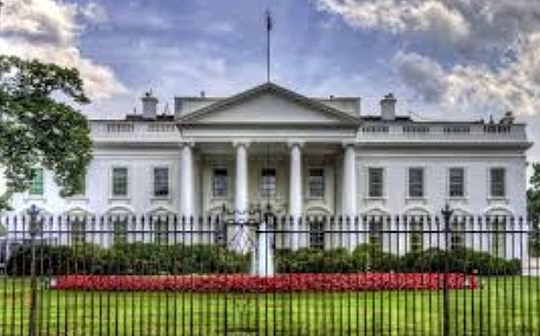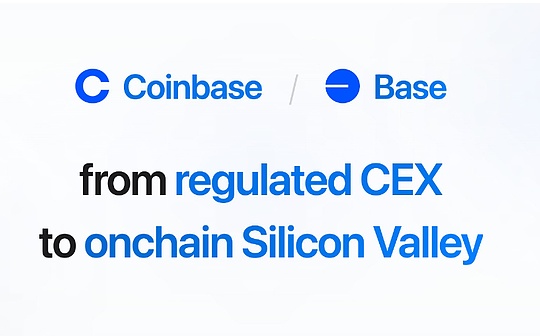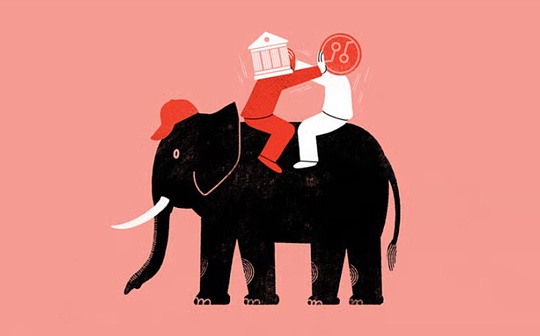
Author: Brian Quintenz, A16Z Crypto Global Policy Director, former member of the Commodity Futures Trading Council (CFTC);
Effective policies for emerging technologies may be challenging, especially when the technology does not meet the traditional regulatory framework.The situation of Web3 is indeed the case, because decentralized systems cannot abide by traditional legal requirements.For example, the current rules assume that there is a centralized intermediary, while the web3 is usually not the case.These rules aim to reduce the risks caused by the existence of trusted intermediaries such as management teams, such as conflicts of interest and information asymmetry.However, applying such rules to decentralized systems may force the system to re -centralize, hinder innovation, destroy the reform potential of Web3, and damage the interests of users.
Decentralization has reshaped social media, identity management, creative industries, and finance.However, although the United States is the most developed country with cryptocurrencies, it does not have an effective decentralized cryptococcling asset supervision system.
Although the United States has made some progress (such as FIT21 and Duna in Wyoming), we still need major legislative progress to provide supervision clarity, appropriately encourage decentralization and protect consumers.No matter who won the US election, the US government and institutions can take some simple steps today (no legislation) to help the United States seize WEB3 opportunities.
Here are the most important of them.Although this list is not complete, it should help the US government and other stakeholders understand how to move in the right direction.
1. Relevant departments should incorporate competition and innovation into the scope of their duties
Just as Mark Andreessen and Ben Horowitz, the key to the US science and technology hegemony is always the start -ups (see the Better Chain Vision Realm “previously reported”>A16Z founder: American Century and Small Technology Company“). They observed:” Start -ups are a group of brave and uncomfortable people who are bravely rejected and unsuccessful, with dreams, ambitions, courage and a special set of skills -creating new things for the world, creating a one that can improveThe products where people live, starting a company that may continue to create more new things in the future.”Edison, Jobs, and Musk are just a small part of the US startup champion. The United States’ leading position in start -ups is largely benefited from our pioneering spirit, professional ethics, rule of law, strong capital markets, educationThe competitive innovation generated by the system and the public sector for investment in research and development.
Although startups can redefine the entire industry and can even create the entire industry in some cases, they have faced various possible adverse factors from the beginning.Compared with large companies with a large number of user groups and financial resources, startups are often difficult to start.Some existing enterprises may also have another advantage: it can make government and start -up competitors compete, or implement expensive rules, thereby forming a “barriers to regulatory access.”
If startups are the lifeblood of American innovation, then all institutions should incorporate competition and promote innovation into their duties to ensure that these goals are always their primary goals.
2. The SEC should participate in the formal rules and provide clear guidance for the classification of digital asset transactions
It is difficult for the US SEC staff to define which encrypted asset transactions are securities, and how difficult it is for ordinary users.Due to lack of clearness, there is no normal digital asset market in the United States.In order to solve this problem, the SEC should participate in the formulation of rules and provide clear instructions for market participants to understand whether the transactions of specific digital assets involve the sale of securities -adopting this action will have many impacts.However, since 2019, SEC has been resisting the public’s appeal to the public, but chose to perform counterproductive supervision through law enforcement, which may damage enterprises, confuses investors and disrupt daily users.
3. Eliminate the requirements of the intermediary, the blockchain eliminates the demand for third parties.
A key innovation of the blockchain is that it can promote transactions without a third -party centralized intermediary.However, the existence of centralized intermediaries is preset for the rules of traditional market designs, such as agents, liquidation agencies, custodians, and businessmen.When the center of the center is involved in these functions, the supervision is appropriate.
But treating decentralized systems in the same way will prevent them from playing a similar role and hinder the benefits provided by these systems.This is equivalent to a “technical discrimination” method.Going to intermediary services can reduce risks (such as trading risks) and costs (such as transaction fees), while improving efficiency and promoting competition.If the blockchain technology eliminates the needs of the intermediary, the regulatory agency should cancel the intermediary requirements under relevant circumstances.For example, when blockchain technology can achieve the same regulatory goals, the securities law should not be required to be requested.
Similarly, by updating the existing rules, various institutions can help the blockchain completely change our financial system.If the existing rules can adapt to transactions on the blockchain, cross -border payment, digital securities and commodity transaction settlement, and derivatives market can become more efficient.
4. Improve the transparency of the institutional decision -making process, and increase the participation of the stakeholders of the private sector, the civil society organization, the academic and the public
Increasing the transparency of the institutional decision -making process is essential for formulating a reasonable encryption policy.It can establish trust, ensure accountability and allow public participation.The public dialogue with the stakeholders will eventually bring more effective regulatory solutions -cooperation between enterprises and regulators explore these solutions to ensure that the organization fully understands the dynamic market structure and the goals, operations and risks of the enterprise.When institutions publicly share decision -making methods, it can also prevent the improper impact of special interests and help ensure policy balance and fairness.
It is important that institutions should encourage (or at least allowed) Enterprises and regulatory agencies to hold education meetings without having to worry about the revenge of law enforcement operations.This will help to realize the “supervision through dialogue”, rather than regulating through law enforcement.
The transparency enables the stakeholders (including innovators and the public) to provide feedback, thereby promoting more wise and tolerant methods to promote the supervision of encryption, reflect different views and promote long -term growth.
5. Allows White House staff and federal agencies to use cryptocurrencies
A legal consultation notice issued by the US Government Ethics Office in 2022 prohibits the “holding any number of cryptocurrencies or employees holding any number of cryptocurrencies or stable currencies” involved in formulating crypto -related policies and regulations that may affect its asset value.The notice is suitable for all White House staff and employees of federal agencies, and stipulates that the minimum threshold for securities is not applicable to cryptocurrencies.
Moving moral standards in terms of conflict of interests is of course critical to establish a trust in government behavior.However, preventing government employees responsible for formulating cryptocurrency rules using any number of cryptocurrencies is like prohibiting officials from the Ministry of Transport from getting on or flying.Wise policies come from participation and knowledge provided.Government employees responsible for supervising cryptocurrencies should be allowed to use it.
6. Provide special training for government employees
In addition to benefiting from the interaction with cryptocurrencies, government employees will also benefit from specializing in blockchain training -which is essential for understanding decentralized innovation and wise policy decisions and effective use of law enforcement resources.As decentralized system reshaping financial and network security, officials need to understand key concepts such as blockchain analysis, smart contract design and decentralized governance.This training can help officials understand how to use the transparency of the blockchain to better achieve the supervision results.It will also help the government formulate balanced regulations, support the innovation of blockchain drive, and ensure that public sector measures meet the principles of decentralization and public interests.
Partnership can enhance this training: By cooperating with industry, research institutions and universities, the government can provide employees with cutting -edge research and professional knowledge of blockchain technology.If such measures already exist (such as the Innovation and Financial Technology Strategy Center of the US Securities and Exchange Commission), the institution should use the cooperation with innovators, developers and builders of new technologies.
7. Support blockchain research and use zero knowledge proof to better protect sensitive and proper information
U.S. government agencies should also promote research on open source and no license blockchain systems to promote national security.Many of our opponents, including Russia and China, are developing the blockchain agreement supported by the government. If they are adopted globally, these agreements may allow the hostile government to obtain personal identity information and sensitive financial and operating data.US agencies should support blockchain research to help the development of private sector solutions, which can help the United States meet the risks of losing to other countries that do not agree with Western values in the encryption field.
One area that can benefit from the government is the development of privacy protection technology, such as zero -knowledge certificate (ZKP).Compared with other privacy enhancement technology, ZKP represents the improvement of step -jumping functions, which can ensure that users get the greatest degree of privacy and control.
ZKP can directly benefit from the US government agencies to help them enhance the security and privacy of information.The blockchain provides decentralized security accounts to ensure that data is protected on multiple nodes.Encryption and decentralized information can reduce the risk of hacking and service interruption.ZKP allows all parties to verify the authenticity of the information without leaking actual data, so that only the necessary identity or authorization certificate can be shared without exposure of sensitive details – for example, it proves that someone’s age exceeds a certain threshold without disclosure.The date of birth.
The combination of blockchain and zero -knowledge proof can enhance data integrity, increase trust in digital systems, and protect confidential information in various government operations.Each institution can also use decentralized systems to improve data transmission and communication.Therefore, all agencies should consider using blockchain and zero -knowledge proof to protect sensitive information (such as financial data of private sector) and improve efficiency.
The United States needs to do more work to establish an effective encryption regulatory system -a system that can inspire decentralization and protect consumers.At the same time, we hope that this possible institutional action list (although incomplete) can help US institutions and other stakeholders understand how to take the pace in the right direction without waiting for new legislation.
Perhaps, while we are waiting for legislation, the staff may be allowed to actually use more cryptocurrencies.







